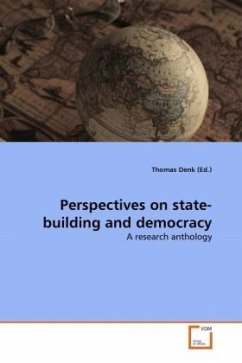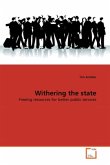Previous research has assumed that state-building is a prerequisite for democratization. This book challenges this assumption. An alternative approach is presented. State-building and democratization is regarded as two processes that may be integrated with each other. When integrated, the two processes are expected to be connected on different society level. The chapters address one or other of the following questions: How is state-building and democratization expected to be connected? How has the international community approached weakened and failing states? How do fundamental dimensions of state-building affect the probability for democracy in new states? How are conflicts over boundaries a part of state-building that affects the conditions for democratization? How does the capital city play role in state-building and democratization? How does inclusion and exclusion work? These questions are explored through comparative analysis and examination of recent cases of state-building and democracy. It is essential reading for researchers that have an interest in state-building, democratization, and formation of demos.
Bitte wählen Sie Ihr Anliegen aus.
Rechnungen
Retourenschein anfordern
Bestellstatus
Storno








